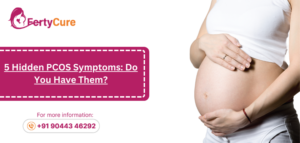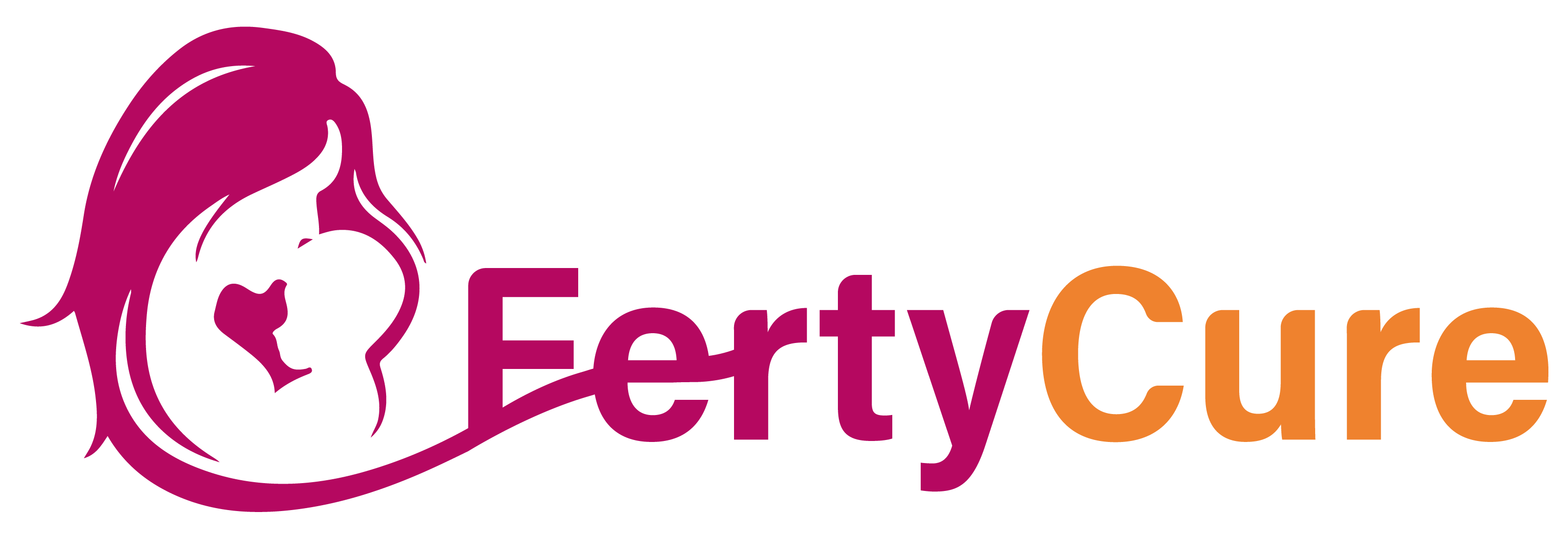Table of Contents
5 Hidden PCOS Symptoms: Do You Have Them?
Introduction
Polycystic Ovary Syndrome (PCOS) stands as an intricate hormonal ailment that impacts numerous women on a global scale. While irregular periods and ovarian cysts are commonly known symptoms, there are several hidden signs of PCOS that often go unnoticed. These elusive symptoms can significantly impact a woman’s physical and emotional well-being. In this article, we will delve into five hidden PCOS symptoms, shedding light on their implications and offering guidance on recognizing and addressing them.

Unmasking PCOS: Beyond the Obvious Signs
PCOS is a condition characterized by hormonal imbalances, leading to a range of symptoms. While irregular menstrual cycles and ovarian cysts are widely recognized indicators, several lesser-known symptoms often fly under the radar. These hidden signs can be equally distressing and may require targeted attention for effective management.
The Complexity of Polycystic Ovary Syndrome (PCOS)
PCOS is not a one-size-fits-all condition; its manifestations can vary widely from person to person. This complexity is due to the interplay of hormones, genetics, and lifestyle factors. The hidden symptoms of PCOS can manifest differently and may even overlap with other health issues, making diagnosis and treatment challenging.
Hair Today, Gone Tomorrow: Unwanted Hair Growth
Excessive and unwanted hair growth, known as hirsutism, is a common but often overlooked PCOS symptoms. This occurs due to elevated levels of androgens, the so-called “male hormones.” Women with PCOS may find themselves dealing with unwanted hair on the face, chest, back, and other areas. This symptom can lead to self-consciousness and impact self-esteem.
Acne Anguish: Skin Troubles and PCOS
Acne is not just a teenage woe; it can persist into adulthood and be exacerbated by PCOS. The hormonal imbalances in PCOS can trigger excessive oil production, leading to stubborn acne breakouts. Adult women with persistent acne, especially around the jawline and chin, should consider the possibility of PCOS as an underlying cause.
Dark Clouds: Mood Swings and Mental Health
Beyond its physical symptoms, PCOS can also affect mental health. Mood swings, irritability, and even depression can be linked to hormonal fluctuations characteristic of PCOS. These emotional struggles are often hidden and can be mistaken for general mood disorders, highlighting the need for a holistic approach to PCOS management.
Silent Struggles: Sleep Disruptions and PCOS
Sleep disturbances might not immediately come to mind when thinking about PCOS, but they are indeed a hidden PCOS symptom. Hormonal imbalances and associated conditions like sleep apnea can disrupt sleep patterns. The resulting fatigue can further contribute to mood swings, weight gain, and other PCOS-related issues.
The Tug of War: Weight Fluctuations and PCOS
While weight gain is often associated with PCOS symptoms, the relationship is more nuanced. Some women with PCOS struggle to gain weight, while others experience difficulty losing it. Insulin resistance, a common feature of PCOS, can contribute to weight fluctuations. Managing weight becomes more challenging due to metabolic irregularities associated with the condition.
Seeking Answers: When to Consult a Healthcare Professional
Recognizing hidden PCOS symptoms is the first step, but seeking professional guidance is crucial. If you suspect you may have PCOS, experiencing any combination of the aforementioned symptoms, it’s recommended to consult a healthcare provider. Early diagnosis and intervention can prevent complications and improve quality of life.
Lifestyle Changes: Navigating the PCOS Landscape
Managing PCOS symptoms often involves lifestyle adjustments. A balanced diet that focuses on whole foods and complex carbohydrates can help regulate insulin levels and support weight management. Regular exercise, stress reduction techniques, and adequate sleep can also contribute to better hormonal balance.
The Power of Awareness: Recognizing Hidden Symptoms
Awareness is key when it comes to hidden PCOS symptoms. By understanding the less talked-about signs, individuals can take proactive steps to manage their condition and improve their well-being. Education, support networks, and open conversations can help break down barriers and foster a community that empowers those affected by PCOS.
Conclusion
PCOS is a multifaceted condition that extends beyond its visible PCOS symptoms. The hidden signs, such as unwanted hair growth, acne, mood swings, sleep disturbances, and weight fluctuations, can significantly impact the lives of those affected. Recognizing these symptoms is a vital step toward timely intervention and effective management. By acknowledging PCOS symptoms and raising awareness about its hidden manifestations, we can provide better support and understanding for individuals dealing with this condition.
FAQs
Can PCOS be cured completely?
PCOS is a chronic condition with no definitive cure, but its symptoms can be managed effectively with the right treatments and lifestyle changes.
Is PCOS only a physical condition?
No, PCOS can also have emotional and mental health implications due to hormonal imbalances. Mood swings, anxiety, and depression can be associated with PCOS.
Is hair loss a symptom of PCOS?
While excessive hair growth (hirsutism) is a common symptom, hair loss can also be linked to PCOS due to hormonal fluctuations.
How can I manage weight fluctuations with PCOS?
Managing weight with PCOS involves a combination of a balanced diet, regular exercise, stress management, and possibly medical interventions recommended by healthcare professionals.
Are there specific tests for diagnosing hidden PCOS symptoms?
Diagnosis of hidden PCOS symptoms may involve a combination of medical history, physical examination, blood tests, and possibly ultrasounds. Consulting a healthcare provider is crucial for accurate diagnosis and tailored treatment plans.

